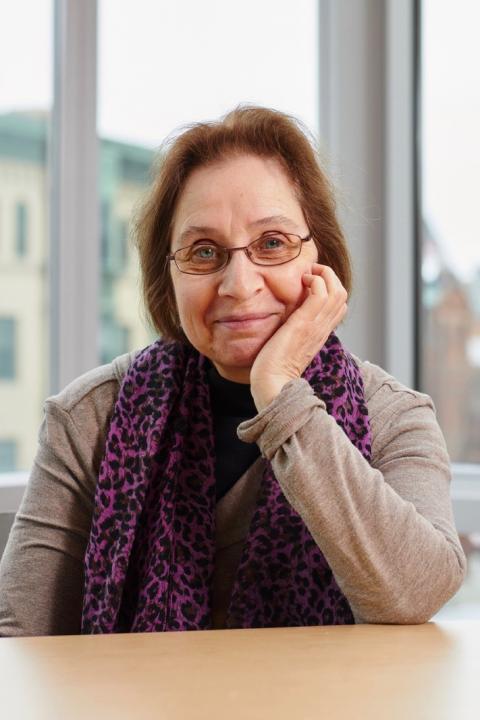
Dave Green
Tamar Diesendruck
Position
Professor
Affiliated Departments
Telephone
617-747-6430
For media inquiries, please contact Media Relations
Career Highlights
- Recipient of the Rome Prize from the American Academy in Rome
- Recipient of the Radcliffe Institute of Advanced Study at Harvard Fellowship and of the Guggenheim Fellowship
- Compositions performed by Pro Arte Quartet, Boston Modern Orchestra Project, New Millenium, Callithumpian Consort, and Firebird Ensemble
- Recordings include The Grief That Does Not Speak (Centaur Records), Theater of the Ear (Centaur Records), "Such Stuff" with String Quartet 1 and "Babel Dreams" with String Quartet 2 (Centaur Records), and On That Day (Centaur Records), among others
- Commissioned by the Koussevitzky Foundation, Fromm Foundation, a consortium of wind ensembles, New York State Council on the Arts, and Christine Schadeberg, among others
- Residencies include MacDowell Colony, Yaddo, Copland House, and Djerassi Foundation in the U.S., and Bellagio (Rockefeller Foundation), Bogliasco, and Camargo Foundation internationally
- Performances throughout the U.S., England, France, Italy, Sweden, Netherlands, Germany, Mexico, China, Singapore, and Israel
- Instruments include cello and piano
Awards
- Grants include those from Massachusetts, Pennsylvania, Meet the Composer, and the American Society of Composers, Authors, and Publishers, among others
- Fellowships include Mellon Post-Doctoral Fellowship in Composition at New York University, the Bunting Fellowship, Ives Fellowship, Goddard Lieberson Fellowship, American Academy Award from American Academy of Arts and Letters
Education
-
School NameUniversity of California-BerkeleyState or ProvinceCaliforniaDegreeDoctor of Philosophy (PhD)Field of StudyMusic Theory and CompositionDate Degree Received
In Their Own Words
